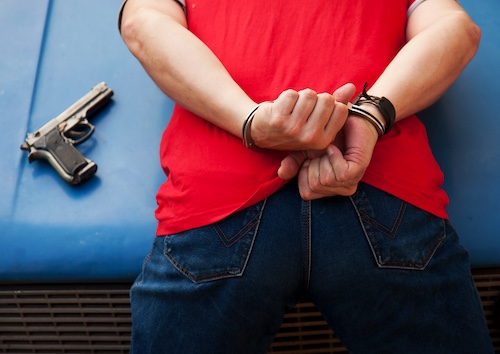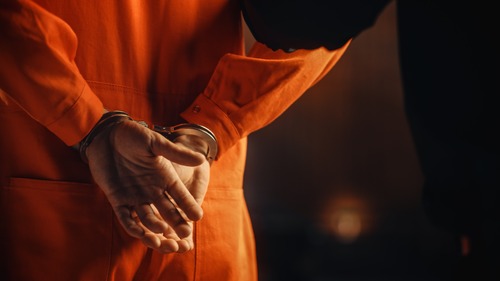At the Cowboy Law Group, we understand that being charged with an underage DWI in Texas can be an overwhelming experience for both minors and their families. Texas has strict DUI laws for drivers under the age of 21. With offices in Woodlands, Houston, San Antonio, and other cities, we are well-positioned to provide aggressive defense for clients charged with underage DUI in Texas.
If you or a loved one is facing drunk driving charges, contact our DWI lawyers in The Woodlands today.
Underage DUI Laws in Texas: Zero Tolerance for Minors
Texas operates under a zero-tolerance policy when it comes to underage drinking and driving. While the legal blood alcohol content (BAC) limit for adults is 0.08%, drivers under 21 can be charged with a DUI if there is any detectable amount of alcohol in their system. This can include alcohol detected in a breathalyzer test, field sobriety test, or a blood sample.
According to Texas Alcohol Beverage Code Section 106.041, a minor is anyone under 21 for alcohol-related offenses. Depending on their age and BAC level, drivers under 21 can be charged with a DWI and face harsher penalties.
Underage DUI vs DWI
For minors, a DUI (driving under the influence) charge generally involves a detectable amount of alcohol below the 0.08% BAC limit. However, if a driver between 17 and 21 has a BAC of 0.08% or higher, they can be charged with a DWI (driving while intoxicated), which carries stricter penalties.
The distinction between DUI and DWI is crucial, as a DWI charge can result in more severe consequences, including a permanent criminal record. This is particularly true for minors aged 18 to 20, who are adults in the legal system.
Penalties for Underage DUI in Texas
A driver under 21 who has any detectable amount of alcohol in their system can be charged with Driving Under the Influence Of Alcohol By A Minor (DUI).
The penalties for underage DUI in Texas can be harsh, even for first-time offenders. These consequences can include fines, community service, mandatory alcohol awareness programs, and driver’s license suspension.
First Offense
A first underage DUI is a Class C Misdemeanor. Penalties can include:
- A fine of up to $500
- 20 to 40 hours of community service
- Mandatory alcohol awareness class
- A 60-day driver’s license suspension
Second Offense
Penalties for a second offense can include:
- A fine of up to $500
- 40 to 60 hours of community service
- A driver’s license suspension for 120 days to 2 years
- Mandatory alcohol awareness class
Third Offense
If a driver has two or more prior convictions for underage DUI, the offense is punishable by:
- A fine of up to $500
- Driver’s license suspension between 180 days to 2 years
- Mandatory alcohol awareness class
- Community service for 40 to 60 hours
The Impact of Refusing a Chemical Test
Under Texas law, minors are subject to the implied consent law, meaning that by driving a vehicle, they automatically consent to a breath or blood test if suspected of driving under the influence. Refusal to submit to these tests can result in an automatic 180-day driver’s license suspension for a first offense and a two-year suspension for subsequent refusals.
Minors who refuse chemical tests will face additional administrative penalties from the Texas Department of Public Safety, even if they are not convicted of a DUI. This can make it more difficult to maintain driving privileges and can add complications to the legal process.
Penalties for Underage DWI in Texas
If a driver under 21 has a BAC over 0.08%, they can be charged with Driving While Intoxicated (DWI) charges. Minors can be charged as adults for alcohol and drug-related offenses.
A first-offense DWI carries more severe penalties, including:
- A fine of up to $2,000
- 72 hours to 180 days in jail
- Driver’s license suspension for up to one year
In cases where there is an open container of alcohol in the vehicle, the minimum jail time increases to six days.
A second DWI offense can result in more significant penalties, including:
- Fines up to $10,000
- Jail time from two to 10 years
- Driver’s license suspension of up to two years
Convictions for third, fourth, or subsequent DWI offenses are classified as felonies and may result in even more severe consequences, including long-term incarceration, extended license suspensions, and a permanent criminal record. Such penalties can drastically impact a young person’s future, emphasizing the importance of seeking legal counsel immediately.
Defenses for Underage DUI in Texas
When defending against an underage DUI charge, it is essential to explore all potential defense strategies. Some common defenses include:
Lack of Probable Cause
For an officer to lawfully stop a vehicle, they must have probable cause that the driver is committing an offense. If there was no valid reason for the stop, any evidence obtained, including BAC test results, could be inadmissible in court.
Faulty or Inaccurate Testing
Breathalyzer machines and field sobriety tests are not infallible. Equipment malfunctions, improper calibration, or human error during testing can lead to inaccurate results. Challenging the accuracy of the BAC test may be a viable defense.
Involuntary Intoxication
In rare cases, a minor may have unknowingly consumed alcohol, perhaps because it was mixed into a non-alcoholic drink without their knowledge. If involuntary intoxication can be proven, it may serve as a defense in an underage DUI case.
Actual Physical Control
If the minor was not actually driving the vehicle at the time of the alleged offense (e.g., they were parked and sleeping), it may be possible to argue that they were not in “actual physical control” of the vehicle.
Choosing a skilled DWI defense lawyer in Texas is essential to protecting your rights.
Legal Options for First-Time Offenders
For minors facing a first-time underage DUI charge, several programs are available that can reduce or eliminate the long-term impact of a conviction.
Teen Court
Teen court is a voluntary program where minors are judged by their peers for Class C misdemeanors, including DUI offenses. Upon completion of the program, the citation may be dismissed, helping the minor avoid a criminal record.
Deferred Prosecution
Deferred prosecution, also known as deferred disposition or deferred adjudication, is an option for first-time offenders charged with Class A or B misdemeanors. Successful completion of this program, which may involve counseling, community service, and other conditions, can result in the dismissal of criminal charges.
Expunction
If a minor is convicted of a DUI under the Texas Alcoholic Beverage Code, they may be eligible to have the conviction expunged from their record. Expunction can help ensure that the minor’s criminal history is not accessible to future employers, educational institutions, or others.
Cowboy Law Group: Defending Your Rights Across Texas
At the Cowboy Law Group, we defend clients facing underage DUI charges in The Woodlands, Houston, San Antonio, Waco, and surrounding areas. Our experienced legal team understands the challenges that come with underage DUI cases and works tirelessly to protect the rights and futures of our clients.
If you or a loved one has been charged with an underage DWI in Texas, don’t hesitate to reach out to our office for a free consultation. We are committed to helping you navigate the complexities of the legal system and achieve the best possible outcome in your case.
Contact the Cowboy Law Group today for a free case review.






